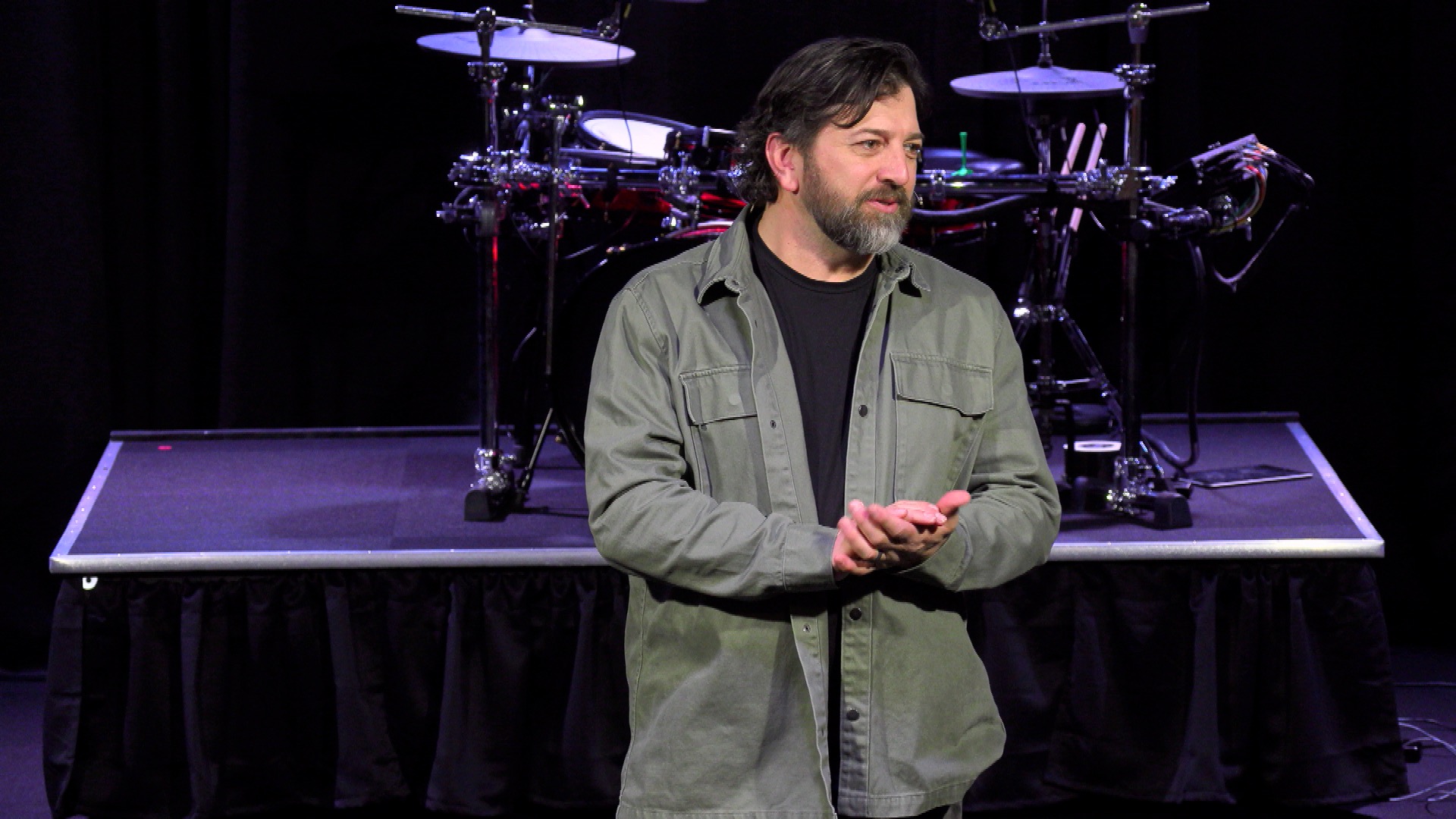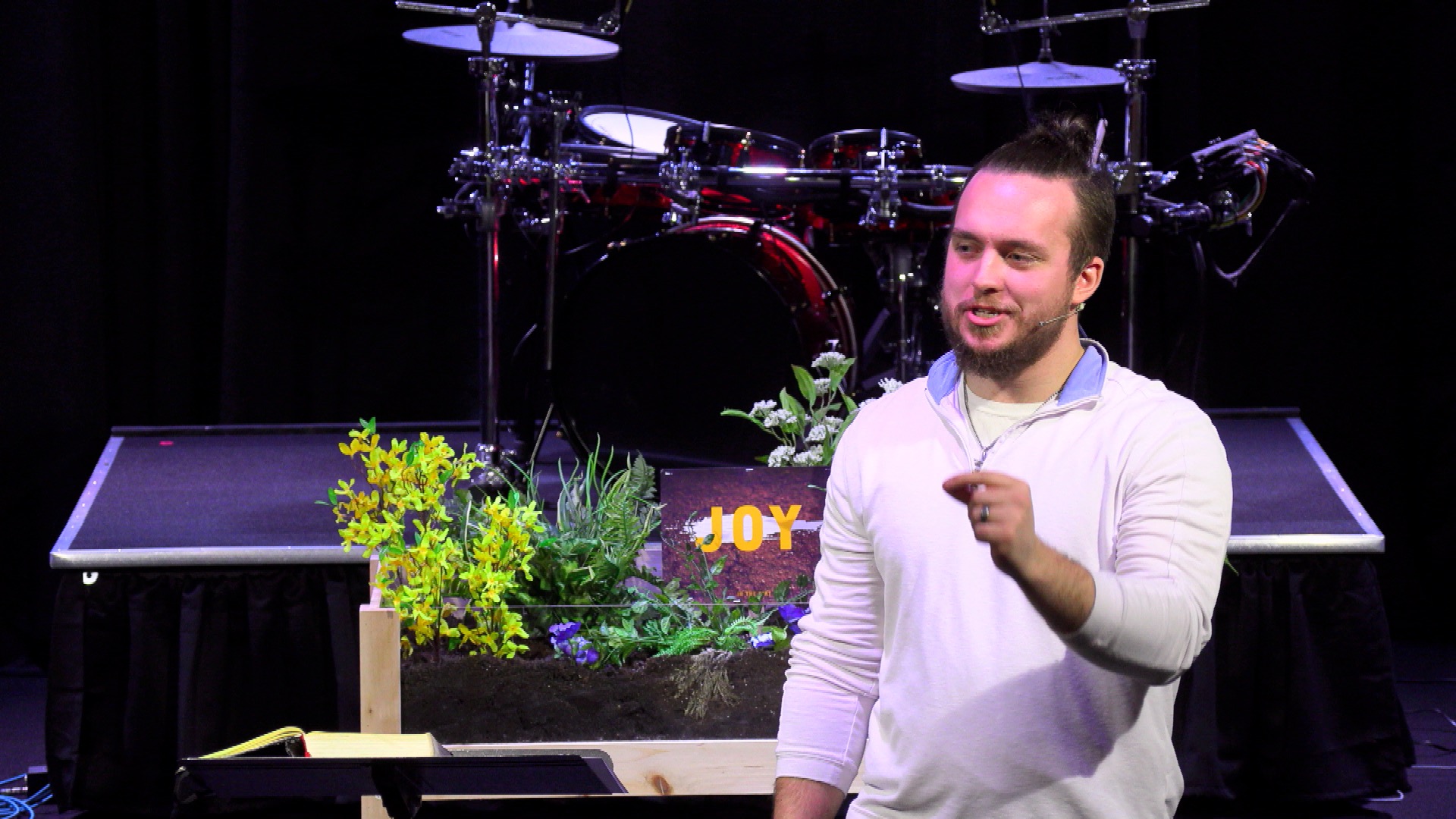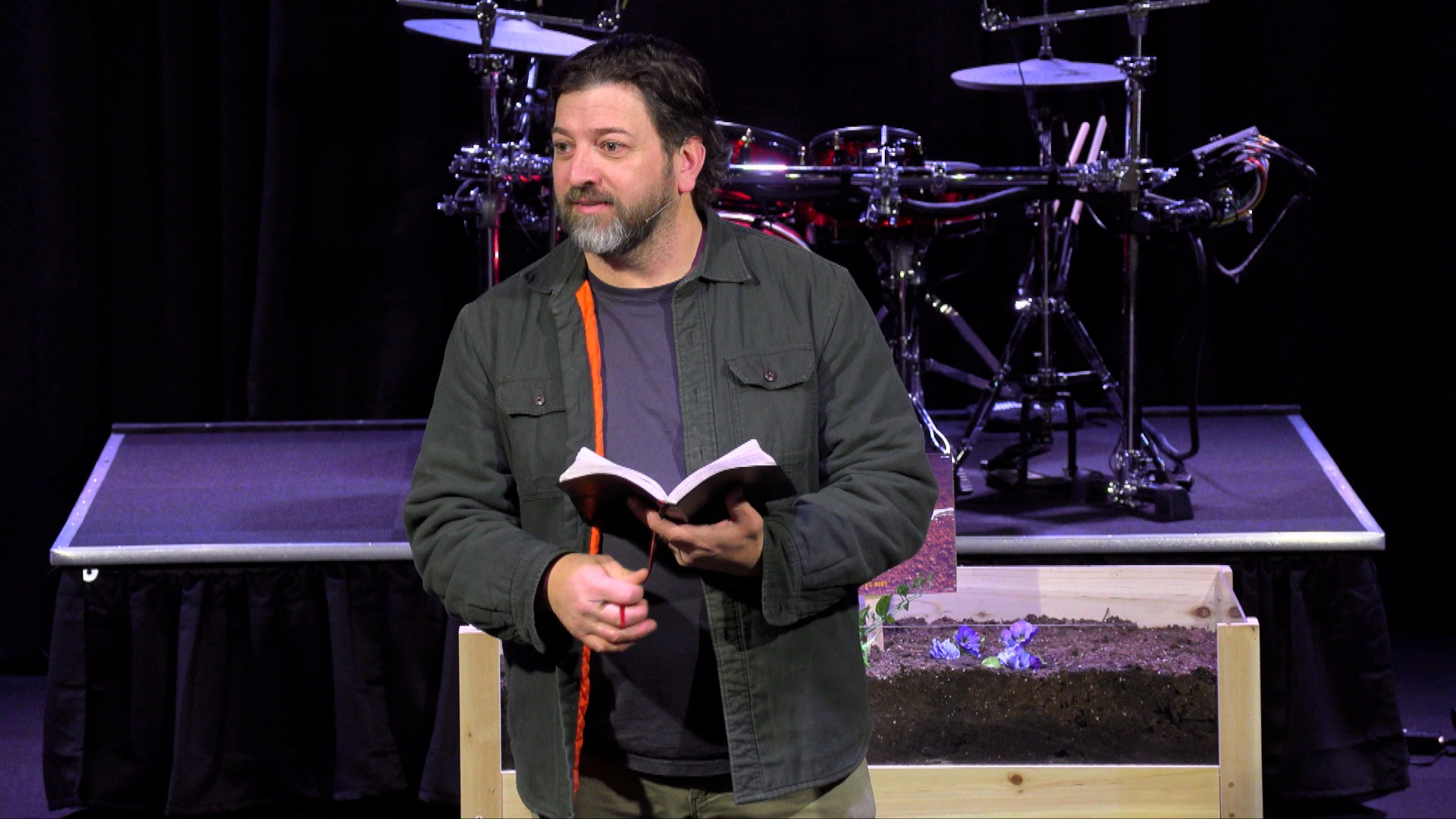Grace Orwigsburg
Sundays @ 9:00 and 10:30am
Grace Tremont
Sundays @ 9:00am
Grace Online
Sundays @ 9:00 and 10:30am
Experience the Hope of GOOD FRIDAY AND EASTER at Grace Free Church
Wrestling Faith
- November 02, 2025 / Josh Daubert
Faith isn’t about having zero doubts—it’s about what you do with them. A worn-out dad brings his tormented son to Jesus after years of disappointment and can only muster, “If you can…” Jesus draws out his doubt, and the dad responds with raw honesty: “I do believe; help me overcome my unbelief.” That prayer becomes a pattern for us—naming our doubts, bringing them to God, and steadily replacing lies with His truth until it sinks in. Even small, messy, in-between kind of faith is still real faith, and it’s more than enough for Jesus to work with.
KEY VERSES:
- Mark 9:14–29
- Mark 9:2–8
- Luke 9:37–43
- Matthew 17:20
- Ephesians 3:20
- Romans 8:38–39
- Proverbs 3:5–6
- Psalm 145:18–19
- Philippians 4:6–7
- 2 Corinthians 5:17
- 1 John 1:9
- Matthew 6:31–32
- Psalm 139:13–14
- James 1:5
- 1 Peter 5:8
- Matthew 11:28
- 1 Peter 5:7
- John 6:37
- John 3:17
HIGHLIGHTS:
- 1. Nameless Faith
- Looking at people in the Gospels whose names we don’t know, but whose faith Jesus celebrates.
- Previous weeks: distant faith (centurion), desperate faith (bleeding woman), persistent faith (Canaanite woman), breakthrough faith (friends through the roof), measured faith (widow’s coins).
- Today: wrestling faith – what to do when doubt pushes hard against belief.
- 2. Doubt: the thing that pushes against faith
- Everyone deals with doubt: lifelong church people, new Christians, skeptics, and people “not sure what they believe.”
- Doubt shows up as questions about God’s goodness, power, timing, or care.
- Key question: Are you willing to wrestle with your doubt instead of just living with it?
- 3. The scene: coming down from the mountain (Mark 9:14–18)
- Right before this, Jesus is transfigured on the mountain with Peter, James, and John (Mark 9:2–8).
- They come down into a mess: a crowd, religious leaders arguing with the other nine disciples (Mark 9:14).
- A father steps forward: his only son (Luke 9:37–43) is tormented by an evil spirit—can’t speak, thrown into seizures, nearly killed multiple times (Mark 9:17–18, 22).
- He had asked the disciples to help, but “they could not” (Mark 9:18).
- 4. Where doubt is hiding in this story
- In the disciples – Jesus calls them an “unbelieving generation” (Mark 9:19). They’d cast out demons before, but this time they hit a wall.
- In the father – years of fear, exhaustion, and disappointment (“if you can do anything…” Mark 9:22).
- The family dynamics: constant crisis, lack of sleep, marriage tension, daily anxiety over their child’s safety.
- We’re not that different: long-term pain and repeated letdowns tend to grow doubt in us too.
- 5. Jesus’ response to honest doubt (Mark 9:23–27)
- Jesus repeats his words back: “‘If you can’? Everything is possible for one who believes” (Mark 9:23).
- The father blurts out one of the most honest prayers in the Bible: “I do believe; help me overcome my unbelief” (Mark 9:24).
- Jesus responds to that small, mixed faith—He rebukes the spirit, frees the boy, and lifts him up (Mark 9:25–27).
- Good news: God works with imperfect faith. He answers a man who has faith and doubt in the same sentence.
- 6. Why the disciples couldn’t help (Mark 9:28–29; Matthew 17:20)
- Later, in private, the disciples ask, “Why couldn’t we drive it out?” (Mark 9:28).
- Jesus: “This kind can come out only by prayer” (and fasting in some manuscripts) – dependence, not self-confidence (Mark 9:29).
- Matthew’s account adds: it was because of their little faith, and even faith like a mustard seed can move a mountain (Matthew 17:20).
- Implication: they may have started relying on their track record instead of relying on God.
- 7. Five steps to wrestle with doubt in real life
- Step 1: Choose to wrestle
- The father could have stayed home; instead, he got up and went looking for Jesus (Mark 9:17).
- Just showing up—at church, in prayer, in conversation—is often step one of faith.
- Step 2: Diagnose it
- You can’t fight what you never name – “you cannot defeat what you cannot define.”
- Jesus surfaces the doubt in the phrase “if you can” (Mark 9:23).
- Our doubts might sound like: “God won’t show up for me,” “I’ll never change,” “Prayer doesn’t work.”
- Step 3: Surrender it
- The father’s prayer is both confession and surrender: “I do believe; help me overcome my unbelief” (Mark 9:24).
- We bring our doubts to God instead of hiding them from God.
- Step 4: Replace it with truth
- Jesus gives the father a new truth to hold: “Everything is possible for one who believes” (Mark 9:23).
- We counter lies with Scripture: God’s power (Ephesians 3:20); love (Romans 8:38–39); guidance (Proverbs 3:5–6); peace in anxiety (Philippians 4:6–7); forgiveness (1 John 1:9; 2 Corinthians 5:17).
- Ask for wisdom when you don’t know what to think or believe (James 1:5).
- Step 5: Repeat it until you believe it
- Quick brain science: repeated thoughts create mental “paths” (neural pathways); the more you rehearse a lie, the more believable it feels.
- By God’s design (neuroplasticity), those pathways can change—repeating truth builds new routes in your mind.
- We keep returning to what God says until it starts to feel more solid than our fear.
- Step 1: Choose to wrestle
- 8. The non-negotiable: bring it to God
- You can do all five steps and still crash if you try to do it without Him.
- Jesus invites the tired and weighed down: “Come to me, all you who are weary and burdened, and I will give you rest” (Matthew 11:28).
- “Cast all your anxiety on him because he cares for you” (1 Peter 5:7); “All those the Father gives me will come to me, and whoever comes to me I will never drive away” (John 6:37).
- He came not “to condemn the world, but to save the world through him” (John 3:17).
TALK ABOUT IT:
- Where do you most relate to the father in Mark 9—his exhaustion, his fear for his child, his disappointment with “religious” help, or his mixed “I believe… help my unbelief” prayer?
- What doubts or questions about God have been sitting in the background of your mind for a long time? How have those doubts affected your choices or your mood?
- Jesus calls the disciples an “unbelieving generation” (Mark 9:19), even though they’d seen Him do miracles. In what ways do we act the same—knowing a lot about God but still defaulting to ourselves?
- When you hit something that feels impossible, what’s your usual go-to: more control, more distraction, or more prayer? What would it look like for you to move toward dependence instead of self-reliance?
- Of the five steps (choose, diagnose, surrender, replace, repeat), which one do you most naturally do, and which one do you tend to skip or resist? Why do you think that is?
- Is there a lie about God or about yourself that you’ve repeated so often it feels “true”? What Scripture could you start using to push back on that?
- How does it change the way you see your doubts to realize that Jesus answered the father’s imperfect faith and healed his son anyway?
- What is one small, specific way you want to wrestle with your doubt differently this week?
APPLY IT:
- Write down one specific doubt or fear you’re carrying right now (about God, your future, your family, your health, whatever) instead of letting it just swirl in your head.
- Pray the father’s prayer out loud this week: “I do believe; help me overcome my unbelief” (Mark 9:24), especially in the moment you feel fear or anxiety spike.
- Pick one verse that speaks directly against your doubt (for example, Ephesians 3:20 for doubt about God’s power, or Proverbs 3:5–6 for confusion about your future) and put it where you’ll see it: phone lock screen, bathroom mirror, car dashboard.
- When a negative thought about God or yourself pops up, pause and ask, “Is this something God actually said, or something I’ve just been repeating?” Then deliberately replace it with the verse you chose.
- Talk honestly with a trusted friend, mentor, or group about your doubt instead of pretending you’re “fine.” Let someone else support you the way this dad went looking for Jesus.
- Build a simple “truth loop”: read your verse, say it out loud, and pray it back to God every day for 30 days to start rewiring your mental pathways.
- When you feel overwhelmed, choose a small act of faith instead of shutting down—show up to church, open your Bible, take a walk and pray, or simply say, “Jesus, I need you right now.”
- Pay attention to small wins—moments you felt a bit more peace, made a healthier choice, or trusted God instead of spiraling—and thank Him for those instead of only focusing on what’s still hard.




Josh Daubert is the Associate Pastor of Community at Grace Free Church. He is an Outreach Ministry graduate from Clarks Summit University, and has been a part of our church for a number of years. Josh previously interned for a summer at Grace Free Church, performing a variety of pastoral duties.